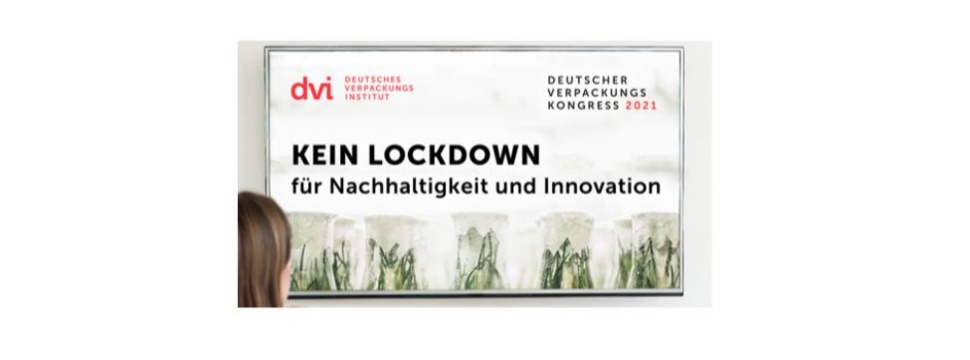For more sustainability, circular economy and recycling: industry pulls together at the German Packaging Congress
News General news
No recycled content and no debates that go round in circles, but instead lots of well-founded arguments, clear opinions and a common endeavor to identify and drive forward the best ways and solutions for more sustainability, circular economy and recycling: More than 350 participants made the first virtual German Packaging Congress of the German Packaging Institute e. V. (dvi) into a lively and rich industry summit.

The 15th German Packaging Congress took place for the first time as a virtual event under the motto "No Lockdown for Sustainability and Innovation." Numerous opinion makers and leaders from business, politics and NGOs not only presented well-founded positions and opinions, but also argued together about solutions, strategies and ways to achieve even more sustainability and circular economy for packaging.
"For all the differences in the strategies pursued and the solutions preferred, many commonalities emerged at the same time," said dvi Managing Director Kim Cheng, summing up the industry summit. "It became clear that there is no single, beatific packaging material for either packaging manufacturers, brand companies or retailers. We need the full range of materials for the immense and heterogeneous variety of products. The principle of the 3Rs - Reduce, Reuse, Recycle - is firmly anchored in the industry's strategies. In the fundamental drive for greater sustainability, circular economy and recycling, companies are pulling in the same direction. What is often lacking is planning certainty, also due to a lack of political courage. This becomes clear, for example, when it comes to the use of recycled materials. Here, we are already much further ahead technologically than the political statements on the subject would suggest. For example, food-grade recyclate is not a material problem, but an approval problem. It is also incomprehensible why politicians are not promoting the expressly desired use of more recyclate with market incentives. Basically, the industry would like to see more clarification and science in the public debates. Up-to-date life cycle assessments are urgently needed to make the right decisions and drive the most sustainable solutions. We need holistic steps and the companies in the industry are more than ready. With their numerous innovations, you are laying the groundwork for this day after day."
A representative survey conducted by the dvi immediately prior to the congress proves that sustainability innovations in packaging are well received by consumers. At 44.0 percent, around half of those surveyed said that packaging had made clear progress in terms of environmental friendliness over the past two to three years, with only 15.7 percent seeing any regression. Furthermore, at 74.6 percent, three out of four respondents confirm that this progress has been achieved without compromises or even with advances in functionality and convenience.
In addition to the central topics of sustainability, recycling and the circular economy, which were discussed in panels involving leading representatives of companies such as Tetra Pak, Mondi, Werner & Mertz, Nestlé, Schwarz-Gruppe, FRoSTa, DSD, Procter & Gamble, BASF, Gerolsteiner, Siegwerk and Limburger Blechwarenfabrik with NGOs such as NABU, WWF and environmental activist Hannes Jaenicke, as well as representatives: inside the Bundestag and the Ministry of Economics, the German Packaging Congress also featured digressions on "mind change at all levels," the use of social media for business growth, artificial intelligence and the importance of industry trends.










